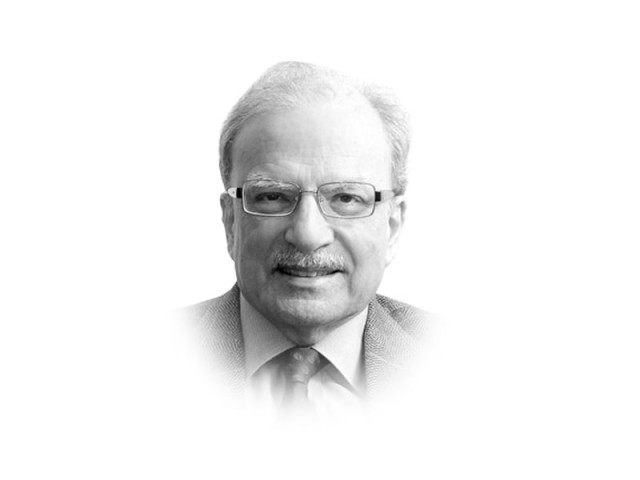Troubles mount for Sharif
It is still early to say whether the government is likely to fail or whether it will pull itself together.

Even without expanding the list of policy priorities, the government could have made different policy choices with respect to the ‘3Es’. It could have developed a more comprehensive approach towards the twin phenomena of extremism and terrorism. The two are not always closely associated. Violence and terrorism are the products of a number of developments. These include sectarianism, growth in ethnic politics, spread of weapons after their easy availability following the war fought against the Soviet Union’s occupation of Afghanistan, drug trade, economic slowdown, and poor political development. Added to these was the rise of gangster activity.
Extremism, while also resulting in violence, is the product of entirely different circumstances. It is the consequence of ignorance, poor education, the state’s weakness to enforce its authority and also developments outside the country. Unthinkingly, the government has combined the two phenomena, limiting itself to the use of force against one source of extremist violence — the Taliban. Even while focusing on the Taliban, attention should not have been limited to one geographic space, North Waziristan. It is now well recognised that the Taliban have established themselves in several large cities. They have a large presence in Karachi’s Pashtun areas. They appear to have infiltrated the Pashtun colonies on Islamabad’s periphery.
Energy, the second ‘E’ on the prime minister’s list of priorities, has led to the development of a long-term plan to increase the capacity to generate electricity. The World Bank has approved the financing of the Dasu run-of-the-river hydroelectricity project. The Bank is also working on developing a series of projects it has included in a programme it calls the “Indus cascade”. China is helping with the building of two second-generation nuclear power plants near Karachi. These are welcome moves, but the number of hours in a day of load-shedding did not decline this summer. To bring that about would have required significant improvements in the power system’s management. The government also took the relatively easier option in dealing with the issue of economic revival. It went to the IMF to get urgently needed foreign funds to remain current with its external obligations. The IMF developed a programme that will require a number of steps to raise domestic resources, as well as increase the value of exports to pay for most imports. Islamabad will have to take politically difficult steps to improve tax collections, bring more people into the tax net and reduce subsidies.
It is not surprising, therefore, that there is a widespread feeling that the government has not met the high expectations raised by its electoral triumph. That said, it is still early to say whether the government is likely to fail in addressing the problems Pakistan faces or whether it will pull itself together.
Published in The Express Tribune, August 11th, 2014.
Like Opinion & Editorial on Facebook, follow @ETOpEd on Twitter to receive all updates on all our daily pieces.















COMMENTS
Comments are moderated and generally will be posted if they are on-topic and not abusive.
For more information, please see our Comments FAQ